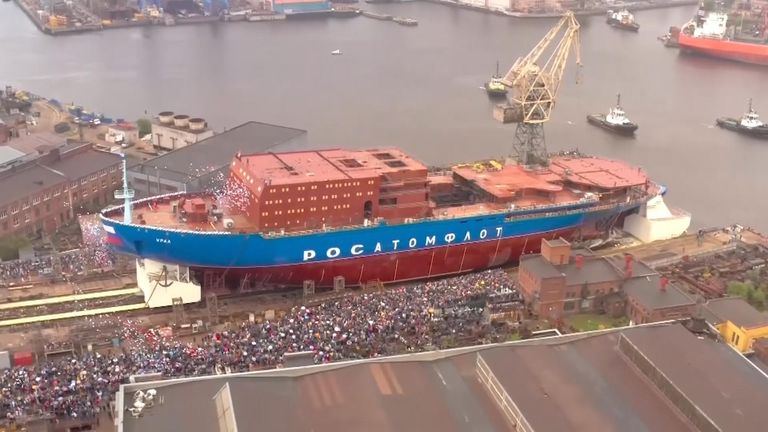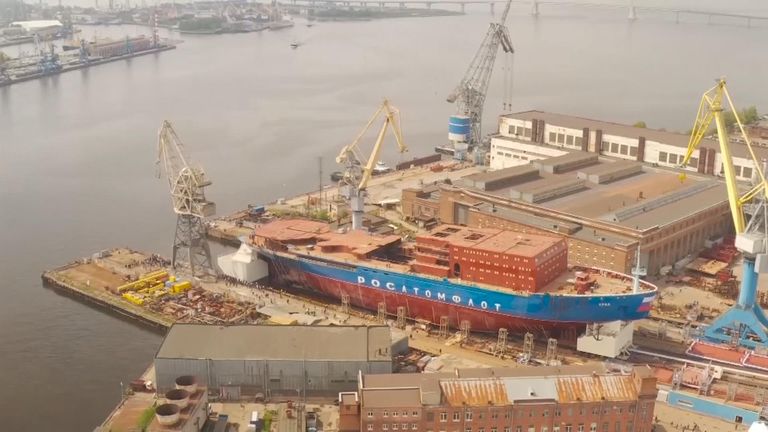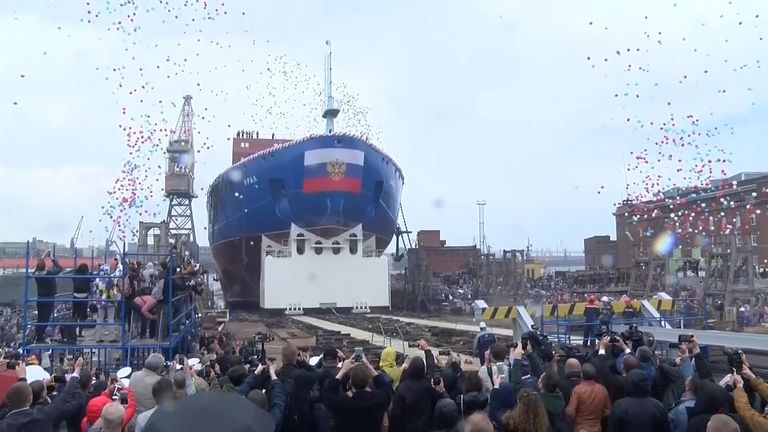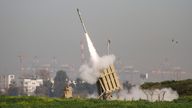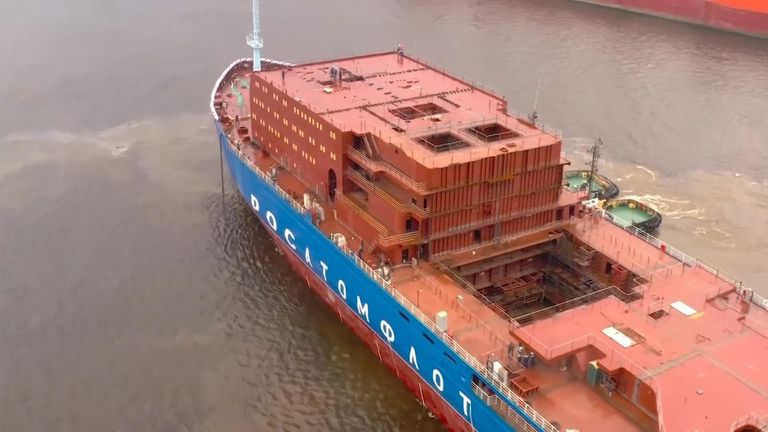Russia launches nuclear icebreaker in bid to tap Arctic reserves
By 2035, Russian President Vladimir Putin said Russia's Arctic fleet would operate at least 13 heavy-duty icebreakers.
Sunday 26 May 2019 09:12, UK
Russia has launched a nuclear-powered icebreaker as part of ambitious plans to tap the Arctic's commercial potential.
It is part of a programme to renew and expand its fleet of the vessels, and the ship is one of a trio that when completed will be the largest and most powerful icebreakers in the world.
The ship, called the Ural, was floated out from a dockyard in St Petersburg on Saturday.
Designed to be crewed by 75 people, the Ural will be able to slice through ice up to around three metres (almost 10ft) thick.
Russia is building new infrastructure and overhauling its ports as, amid warmer climate cycles, it readies for more traffic via what it calls the Northern Sea Route (NSR) which it envisages being navigable year-round.
The Ural is due to be handed over to Russia's state-owned nuclear energy corporation Rosatom in 2022 after the two other icebreakers in the same series, Arktika (Arctic) and Sibir (Siberia), enter service.
Moscow is trying to strengthen its hand in the High North as it vies for dominance with traditional rivals Canada, the United States and Norway, as well as newcomer China.
By 2035, Russian President Vladimir Putin said Russia's Arctic fleet would operate at least 13 heavy-duty icebreakers, nine of which would be powered by nuclear reactors.
The Arctic holds oil and gas reserves equivalent to 412 billion barrels of oil, about 22% of the world's undiscovered oil and gas, the US Geological Survey estimates.
Moscow hopes the route which runs from Murmansk to the Bering Strait near Alaska could take off as it cuts sea transport times from Asia to Europe.
